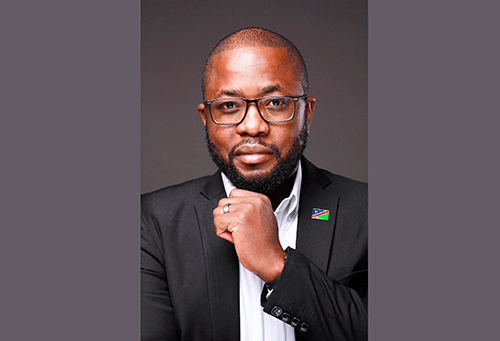On 1 September 2024, South Africa implemented the two-pot retirement system, a strategic initiative aimed at balancing immediate financial needs with long-term savings.
This system divides retirement savings into three distinct components: the vested pot, the savings pot and the retirement pot. This innovative shift has sparked discussions throughout Africa, particularly in Namibia, where debates surrounding the Financial Institutions and Markets Act (FIMA) have raised the possibility of similar reforms.
The concept of the two-pot system was born out of the need to provide financial flexibility while safeguarding retirement security. South Africa adopted this model to address the competing pressures of immediate financial demands and the necessity of preserving funds for retirement. By allowing partial access to retirement savings before retirement, the system aims to alleviate short-term financial stress without compromising long-term stability. According to eNCA TV news channel, this approach was chosen to strike a balance between these dual concerns.
Under this new system, all contributions made before 31 August 2024 are allocated to the vested pot, which remains inaccessible until retirement. Contributions made after this date are divided, with one-third allocated to the savings pot, which is accessible annually with a minimum withdrawal of R2 000. The remaining two-thirds are deposited into the retirement pot, which can only be accessed upon reaching retirement.
One advantage of this system is the flexibility provided by the savings pot, which offers an annual withdrawal option, thus catering to emergencies. The retirement pot ensures that a significant portion of savings is preserved for retirement, fostering long-term financial security. Additionally, the clear separation of funds encourages disciplined saving practices.
However, the system’s complexity may pose challenges for individuals with limited financial literacy, making it difficult to understand and manage. Furthermore, easy access to the savings pot could lead to premature depletion of funds, potentially leaving individuals with insufficient resources for retirement. Additionally, while the savings pot provides some liquidity, the majority of contributions are locked away until retirement, which could pose challenges during prolonged financial difficulties.
Amid ongoing debates surrounding the FIMA Act in Namibia, the two-pot model offers a balanced approach that addresses public concerns about financial flexibility while ensuring long-term retirement security. Policymakers in Namibia might consider this model as a viable alternative to the proposed restrictions under FIMA.
The Namibian context is particularly relevant, given the significant role that pension funds play in the country’s economy.
Comparison
Controversies surrounding pension systems are not unique to Africa. European pension systems, particularly in France, have faced significant challenges, leading to widespread protests and economic disruptions. France’s attempts to reform its pension system, including raising the retirement age and adjusting benefits, have been met with resistance.
These events underscore the complexities of pension reform, where balancing financial sustainability with public acceptance is critical. The French experience highlights the importance of designing systems that meet economic needs while maintaining public trust.
Across Africa, there is often resistance to allowing premature access to pension savings. Critics argue that early withdrawals undermine retirement security, while proponents emphasise the need for flexibility to manage immediate financial pressures. In many cases, governments and financial institutions are cautious about loosening restrictions, fearing long-term economic instability.
Pension funds hold significant sway in financial markets and economic dynamics. In Namibia, the Government Institutions Pension Fund is a powerful player with substantial investments in major entities such as Capricorn Group, MTC and Namibia Breweries. As of March 2022, the GIPF managed assets totalling N$147 billion, with a large portion invested within Namibia. These investments have had a profound impact on the nation’s economy, supporting job creation and fostering economic growth.
For instance, the GIPF received N$321.9 million in dividends from its investment in FirstRand Namibia in 2024. Such investments not only support corporate expansion but also have broader implications for Namibia’s economic development.
Access and benefits
The proposal to restrict pension access until retirement has been met with criticism, particularly concerning the fees associated with borrowing against one’s own savings. Critics argue that individuals should not be penalised for accessing their funds, especially when those funds are being used by corporations and fund managers to generate profits. The disparity between the treatment of ordinary citizens and public office bearers, who can access their pensions more freely, further fuels the debate.
This criticism is particularly relevant in Namibia, where there is a difference between normal pension contributions and those of public office bearers, who can cash in on their pensions when retiring from Parliament, yet ordinary citizens face restrictions.
The GIPF’s investments, such as the N$75 billion allocated to local markets, have had a profound impact on Namibia’s economy, supporting job-creation and economic growth (Namibia Media Holdings, 2023).
South Africa’s two-pot retirement system represents a strategic attempt to balance short-term financial needs with long-term security, offering a potential model for Namibia amid its FIMA debates. However, the system is not without its challenges, reflecting broader global issues in pension management. As pension funds continue to shape markets and economies, the debate over access and control remains critical, demanding thoughtful and balanced solutions.
*Lot Ndamanomhata is graduate of public management, journalism and communication. He writes in his personal capacity.



